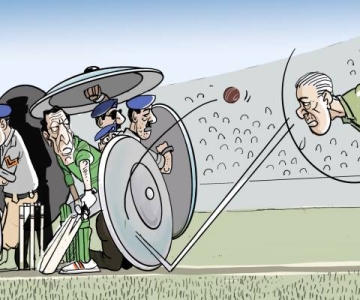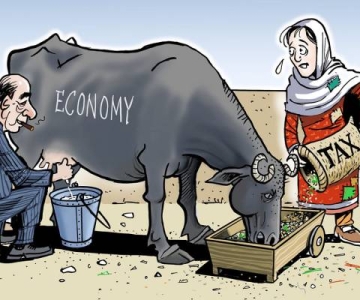Mannequins dressed in brightly coloured headscarves at a shop in Cite, France
I talked to Akbar S. Ahmed about the perception of Islam and Muslims in the West
Raza Rumi: With the rise of ISIS, a global debate has ensued about Islam and its followers. ISIS adherents term their acts in sync with Sharia. What are your views on ISIS and its ideology?
Akbar S. Ahmed: Let me make some generalizations here based in research and reflection. ISIS can only be understood in the context of the collapse of relations between tribes and central governments and the implosion of tribal society. I go into this process in detail in my book The Thistle and the Drone: How America War on Terror Became a War on Tribal Islam in which I examine 40 case studies in detail across the Muslim world. In Pakistan we have seen something like ISIS with the emergence of the TTP, in West Africa with Boko Haram and Al Shabab in East Africa. Muslim tribes typically live by a code of behavior that emphasizes honor, hospitality, courage and especially revenge. This code has provided a kind of stability for centuries despite the fact that certain aspects of it such as taking revenge are against Islam. Yet after independence these tribes were integrated into modern states and the relationship between them and central governments has often been tumultuous. Today, in a trend seen especially since 9/11, Muslim tribal society is in chaos and the code of revenge especially is completely out of control. Support for ISIS comes from tribal groups in both Syria and Iraq who have been oppressed both by central governments in Damascus and Baghdad. There is nothing Islamic about what they are doing, but their actions can be explained through the mutation of the code of revenge. When they kill western hostages, for example, they say explicitly this is to take revenge for airstrikes. Similarly, the TTP has taken similar action against Pakistani soldiers in revenge, they say, for drone strikes. There has been simply too much suffering in these societies as ordinary people are confronted with airstrikes, drones, suicide bombers, and tribal feuds. In order to remedy the situation and bring stability and peace, we must all have a clear idea what is going wrong. We must not confuse the minority of militants with the larger tribal society from which they come as has too frequently been done. We must work toward a situation where the tribal people of Muslim countries feel they are treated as full citizens of the state with respect for their human rights and opportunities for economic development. It is only then that the violent forces in these societies will be effectively checked.
RR: Your recent work has involved reviewing the practices of Islamic faith in Europe. What are the key findings so far?
AA: I am currently engaged in a study of Islam in Europe called Journey into Europe: Islam, Immigration, and Empire, which involves extensive fieldwork across the continent [Journey into Europe project website: http://journeyintoeurope.com ]. I am investigating how Muslims are living in Europe today and also the historical interactions between Europe and the Islamic world.
Muslims fall into three broad categories in the context of Europe today: they are indigenous or native (like the majority of Bosnians); immigrants (most of them come to the country that colonized their land so feel they have a right to be there as a fact of historical reciprocity North Africans to France, South Asians to Britain; Germany is the exception as it invited guest workers mainly from Turkey a country that it did not colonize ); and converts (especially the young seeking answers to their spiritual problems).
Muslims have been in Europe since 711
I am examining these different categories of Muslims in Europe in three distinct phases of history: Muslims have been in Europe since 711, which can be taken as the start of the first phase of the Muslim presence in Europe. This phase ended in 1492 with the fall of Granada, the last independent Muslim kingdom, and the eventual expulsion of Muslims (and Jews) from the Iberian Peninsula.
The second phase of Muslims in Europe starts around the 15th century and lasts until the 20th century and is formed by the clashes between European Christian forces and Ottoman armies. Ideas of Islam as alien and predatory are settled in European minds as a result of this phase. We can see the impact of this phase in our times from a film like Dracula Untold released this year. In the film, Dracula, one of the most notorious monsters of fiction, is depicted as a family-loving heroic figure battling the brutal despot sultan, Mehmet II and his bloodthirsty Turkish hoards.
The third phase starts when European countries colonize Muslim lands in the 19th and 20th centuries and immigrants arrive in Europe to work and find better lives from the second half of the 20th century onwards. A second and third generation of Muslims is now coming of age in Europe. There are many issues around them that create debate, controversy, anger and even hatred in the majority population. Issues of terror(such as the savage beheading of western hostages), Sharia and the hijab are broadly associated with Islam. There is a general perception that Muslim leadership has not been up to the job and the community is adrift. This raises several conceptual questions that we set out to explore.
There were times when the Muslim ruler had a Christian foreign minister and a Jewish chief minister
Europe today faces a huge challenge in dealing with its Muslim citizens, especially after 9/11. In the previous century Europe had a shocking record in dealing with religious minorities, which can be seen with Hitler Final Solution to deal with the Jewish community. One would think those terrible events would have prevented this from happening again in Europe, but we saw in the 1990s how genocide was perpetuated against the Bosnian Muslim population. Yet Europe also has a model of a successful and harmonious society, in which Jews, Christians, and Muslims lived together and worked together in Andalucia Spain a thousand years ago. There were times when the Muslim ruler had a Christian archbishop as his foreign minister and a Jewish chief minister. The Spanish refer to this period as La Convivencia or co-existence.
There are many links between Europe and the Muslim world that need to be discussed in the media and in schools. For example, Goethe, who was inspired by Hafiz, is one example. Goethe is considered the German equivalent of Shakespeare and he wrote a poem to the Prophet of Islam, not many Muslims or non-Muslims in Europe today are aware of this. Allama Iqbal placed Goethe on the same level as Rumi as a spiritual master. When I met Dr. Haris Silajdzic, the former president of Bosnia and a leading intellectual, in Sarajevo, he cited Goethe as a seminal figure and person who inspired him.
Iqbal is a bridge between Europe and the Muslim world
Allama Iqbal himself is also a bridge between Europe and the Muslim world. Pakistanis will be interested to learn how valued and honored Iqbal is in Europe. As I traveled across Europe, this year I found monuments to Iqbal and streets named after him in London, Cambridge, Cordoba, Berlin, Heidelberg, Munich and Sarajevo. Europe should build on these links to create a truly pluralist societies where Muslims, and all other groups are entitled to the same rights, privileges, and opportunities as all citizens. But there is much work to do, especially in the area of education of different groups about one another.
This study is also unique in that normally the trend is for western scholars to look at the east, and in this study I as someone from the east is studying the west, so I am reversing the paradigm. Additionally, I have accompanying me an international team of young scholars with me who are bringing a unique perspective themselves, enriching this social science study. My team is mixed in terms of gender and religion so it reflects the interfaith reality of today which is our aim. They are all very committed and enthusiastic.
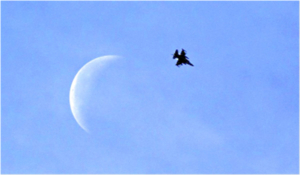
RR: What are the differences between European and North American variants of Islamophobia?
AA: I was a commissioner on the Runnymede Trust Commission in the mid-1990s in the UK to study the phenomenon of prejudice and hatred regarding Islam. At the commission we coined the phrase Islamophobia, which became a popular phrase. After 9/11, it became a global phenomenon. In the US and Europe the phenomenon is the same. In both, right wing parties promote the idea of Muslims as terrorists and they focus their hatred on immigrants. Sometimes these parties are involved in acts of violence. But most dangerously, mainstream society is becoming increasingly hostile to Muslims as a community. While there is active interfaith dialogue to promote understanding there is equally active attempts to create hatred against Muslims. After 9/11, North American and European Islamophobes have joined hands and pooled their resources so that they can hold big rallies, publish books and articles, and influence people to act against Muslims. A tragic example is Anders Breivik, who killed 77 people in Norway. In his manifesto, which expressed such hatred for Muslims, he cited Robert Spencer, an American, 64 times. Such hatred is dangerous because it can promote violence against a minority community which is already feeling under siege.
Rumi was, according to the Islamophobe, a terrorist poet
No Muslim is immune to Islamophobia in the West. Even I in spite of my very public interfaith efforts have been attacked on the basis of the most absurd arguments: in one case because the Islamophobe attacking me mentioned that I held the Ibn Khaldun Chair of Islamic Studies at American University in Washington, DC and wrote that Ibn Khaldun was a terrorist militant. Another accusation was that I admired Maulana Rumi who was, according to the Islamophobe, a terrorist poet. It is the height of absurdity, but some of these voices are influential and thus they must be challenged and the best way to do this is by building interfaith bridges of understanding and working to improve education.
RR: You have been involved at the forefront of interfaith dialogue in the West. How is this effort progressing currently?
AA: I have been very involved with interfaith dialogue for the last several decades, both in the UK and the US. After 9/11 I realized that interfaith communication and dialogue was a matter of utmost urgency. I joined a working group of leaders of different faiths in Washington DC, including a senior Christian Bishop and a senior Rabbi to form what we called the Abrahamic Summit. This group included the three religions that descend from Abraham, Judaism, Christianity, and Islam. We spoke in houses of worship, in the media, and at institutions like the National Press Club and National Defense University. The momentum of the Abrahamic dialogue allowed more and more people to join in harmony and good faith.
At the National Cathedral in Washington, DC a special service, the evensong, which featured beautiful choral music, was held in my honor, in which I read from the Quran. This was an unprecedented event. The presiding bishop, John Chane, said an evensong is normally not dedicated to a Christian, let alone to a Muslim. Over 1,000 people were present including the senior rabbi, imams, and priests. Muslims had tears in their eyes and said they never imagined to hear the Quran read in the National Cathedral. I have also been involved in dialogue with non-Abrahamic religions such as Sikhism and Hindus and was given the first Gandhi Center Fellowship of Peace Award.
As a professor, it is very important to me to involve students so the next generation can be practitioners of interfaith dialogue. But I face a huge challenge given the state of the Muslim world, including Pakistan, today. The truth is that Pakistan was founded on the basis of interfaith understanding. The speeches of the Quaid-i-Azam confirm this with his reaching out to Christians and Hindus. While the green in the Pakistan flag represents Muslims, the white represents non-Muslims and minorities. Yet I am so saddened to see the churches and minorities attacked and treated so badly in Pakistan today. I would like to share with you how badly it reflects the image of Pakistan abroad. It makes my job difficult when I talk about prejudice and problems facing the Muslims in the west and people will immediately raise the issues of how we treat our Christians in Pakistan.
RR: The diversity of Muslims is a lesser known story. How far do you think there is an appreciation that Muslims are not a monolith and how is your work contributing to it?
AA: On 9/11, I was in Washington, DC, where I had just begun teaching, and I saw immediately the challenge in presenting the full picture and diversity of the Muslim community. At that time, when people asked me about Muslims they would assume I was Arab because many in America thought all Muslims were Arab. Not many people had any idea about Muslims. They didn’t know that Muslims have ethnic, sectarian ideological, regional, and national identities. Sometimes when these are different they create hostilities between people. For example, in some mosques in the west there have been tensions between Shia and Sunnis. In order to clarify the true diversity of the Muslim community and educate people about Islam, I decided to do fieldwork and reflect what the situation was like on the ground. I embarked on a quartet of studies examining the state of the Islamic world after 9/11 and the relationship between Islam and the West, of which the current Europe project I mentioned earlier is the fourth. The others are Journey into Islam: The Crisis of Globalization (2007), which examined what Muslims thought of the US and the West and involved travel across the Muslim world; Journey into America: The Challenge of Islam (2010), which examined how Americans perceived Islam and Muslims and involved travel across the United States; and The Thistle and the Drone: How America War on Terror Became a Global War on Tribal Islam (2013) which explored the tribal societies on the periphery of nations that have gotten involved in the war on terrorism.
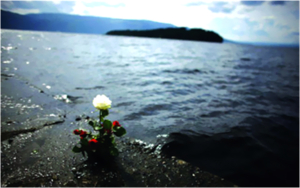
RR: Pakistan remains the centre of global attention due to the radical outfits that operate on its soil. Do you think the Pakistani state can reverse the unfortunate trends of the past and what would be the three most important steps? What could Muslims across the world, especially those in conflict affected areas, be doing to deal with radicalization?
AA: In the 1960s when I was a young man and I joined the civil service of Pakistan, Pakistan was a very different country. South Korean experts were visiting Pakistan to learn Pakistan secrets of progress. Harvard University and the World Bank identified Pakistan as the next model of growth. Pakistan’s new airline, its construction of the great dams and the international prowess in sports such as cricket and squash were gaining Pakistan an international name as a country on the move. Pakistan seemed to promise so much. Becoming a modern, functioning state seemed within our grasp. That did not quite happen. In time, the structures of politics and the state began to collapse. Today we see a very different reality. I see it as the failure of modernity and the modern state, not just in Pakistan but across the Muslim world.
There is a structural and organic link between the failure of modernity and radicalization. Had Jinnah’s vision of a modern state succeeded, there would have been no radicalization. Jinnah dreamt of a Pakistan based in human rights, women’s rights, and minority rights, and respect for the constitution and the law. He constantly spoke against nepotism and corruption. Because the state failed to live up to these ideals over the decades after his death, people were eventually disillusioned and turned to other means to express their anger and frustration. So much of what is happening in Pakistan today is a direct result of the collapse of the modern state. Ordinary Pakistanis are now quite desperate for the simple demands of life food for their children, drinking water, health and transport facilities, and employment. The government seems uncaring and incompetent.
The most important and urgent steps are to recreate what the Quaid called the steel frame of the nation: an honest and competent administration resting on field officers selected on merit and an honest judiciary. These officials must be backed by political resolve. Without a combination of good clean administration in the field, an honest judiciary, and political backing, nothing very much will change in the lot of ordinary Pakistanis. Today it seems that without sifarish, nothing moves.
The relationship between the military and Pakistan’s elected governments has always been a difficult one, often ending in martial law. The politicians, however, must also acknowledge the vital role of the military in Pakistan today. At this moment in time, one of the few functioning official organizations in Pakistan with a coherent command and control structure and a key guarantor of Pakistan’s independence is the Pakistan army. Its importance cannot be overemphasized. There is no doubt, however, that progress must be achieved in and Pakistan must stay firmly on the democratic path. However bad a government, it must be given a chance to do its best and if it fails it can be voted out of office. Military rule, as during Ayub Khan’s period in the 1960s, can only point the way in a certain direction. Yet it cannot deliver a fully functioning democracy. That must be left to the politicians.
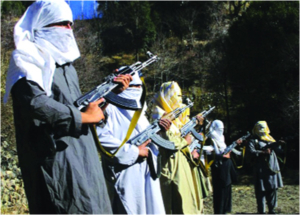
RR: Many say the ideological challenge from progressive and liberal Muslims is weak. Do you agree? And if yes what needs to be done?
AA: The failure of modernity is in one sense the failure of the modern liberal and progressive Muslim. While talking about democracy and liberal values, the modern Muslim, who forms the tiny political and social elite, is quite happy to violate the dreams of Mr. Jinnah and indulge in everything he warned against such as nepotism and corruption. They would like everything through shortcuts and contacts rather than merit and hard work. They want to be part of the international order and enjoy its goods yet share little of it with the ordinary people of Pakistan. The elite identify with materialism and would speak of access to what the west has to offer in terms of technology, commerce, trade, and education. They will speak of democracy and human rights. Yet the gap between the rich and the poor is so frighteningly wide in Pakistan today. That gap also reflects the contempt that most members of the elite have for the poor sections of society in Pakistan. Today Pakistan has truly become two nations the very rich and the rest.
This gap has consequences. So much of the radicalization and the breakdown of law and order is driven by a desire in the militants to pull down a structure that they feel they cannot participate in. The elite Muslims must see how they look to the vast population of his country. They must be more self reflective and self-critical. In order to genuinely promote liberal and humanistic values, they must bridge the gap and be prepared to sacrifice their comfort and their wealth. That is, after all, the vision of the Quaid, and is contained in the vision of the great faiths such as Islam. The Pakistani liberal must not only restrict his concern for the masses by speaking about them in the air-conditioned luxury of their posh living rooms over a glass of whiskey but actually step out into the villages and shanty towns of their own country. They will then be able to fulfill their ambitions of acting as true leaders of the nation and they will be inspired by the warmth and faith of the ordinary Pakistani.
RR: Drone strikes are back and there is little or no protest in Pakistan. How do you see this situation?
AA: There is no response to the drone strikes because Pakistanis are simply overwhelmed by the cumulative crises on their borders and inside Pakistan. For the first time in its history, Pakistan faces hot borders on the western front (with the Taliban), the eastern front (with the Indians), and now in the southwest (with the Iranians). In addition the political protests against the government have distracted the already shaky administration to the point of paralysis. In this environment, how many more crises can Pakistanis take? My hope is that Pakistan will come out of these crises a stronger nation and be able to live as a good neighbor in the region, and, most important, create a healthy and integrated polity within the state. There is no better cure for radicalization than the principles of justice, good administration, and shared prosperity all the elements that were in the Quaid’s vision for Pakistan. This is a time for resolute, wise, and compassionate leadership with a clear vision of creating a society worthy of the Quaid’s dreams.
Akbar S. Ahmed is the Ibn Khaldun Chair of Islamic Studies at American University, Washington, DC, the former Pakistani High Commissioner to the UK and former member of the Civil Service of Pakistan. His latest book is The Thistle and the Drone: How America’s War on Terror Became a Global War on Tribal Islam (Brookings 2013)


